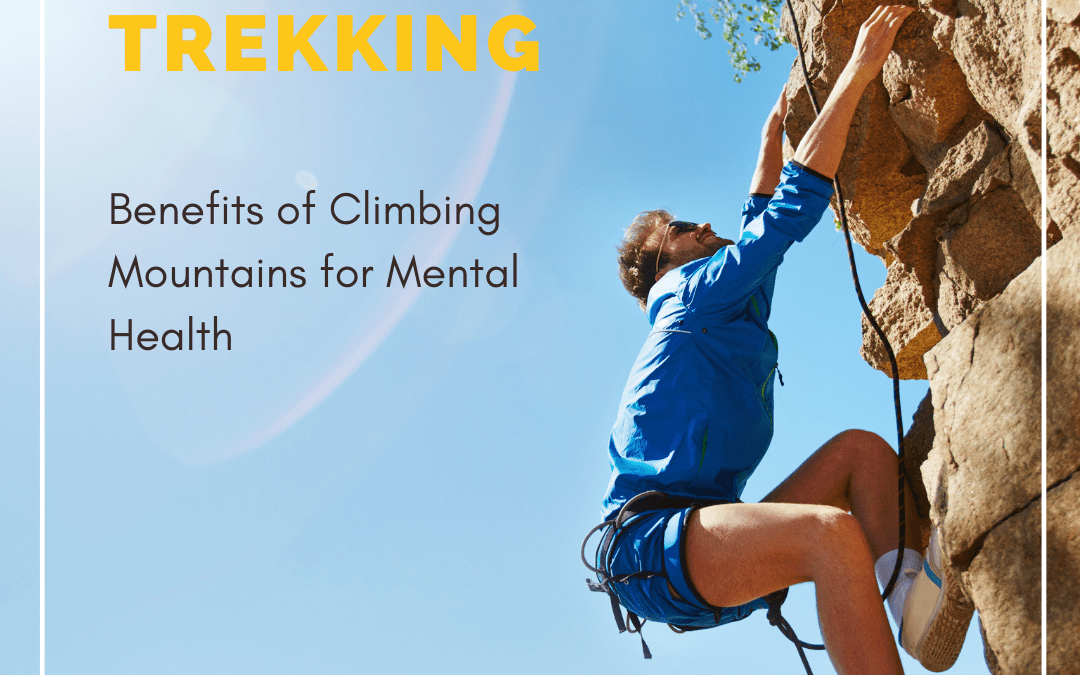It’s a well-known fact that exercising releases endorphins and other feel-good hormones. But what about activities like rock climbing?
It sounds almost strange to think that clambering over boulders and up rock faces can have a positive effect on our mental health. But this isn’t just wishful thinking. Although studies on the subject are limited, their results have shown that climbing can help our mental health in its own particular way.
It turns out the antidote for feeling down could be going up.
Bouldering Can Improve Depression Symptoms
Back in 2015, the University of Erlangen-Nuremberg led one of the very first formal scientific studies of climbing’s effects on people with mental health issues. The study focused on indoor bouldering as a treatment for depression.
47 participants were divided into two groups, namely the intervention waitlist groups.
The first group started bouldering immediately after a baseline assessment of their mental health.
The second group started bouldering after a regular eight-week treatment.
Each group climbed for three hours once a week over the course of eight weeks.
The study found that, after eight weeks, climbing had positive effects on the symptoms of depression.
Climbing, Anxiety, and Self-Confidence
In 2016, Alan Ewert of the Indiana University of Bloomington led a study on the effects of eight weeks of sport rock climbing training on anxiety in healthy sedentary adults.
The 19 voluntary participants were divided into two groups, namely the control and experimental groups.
The experimental group learned basic climbing and rope techniques. Next, both groups were measured on their aerobic power and body composition.
The experimental group practiced top rope climbing with a 70% HR reserve intensity level for one hour per day for three days over an eight-week period. During this time, the control group did not participate in any physical activity program.
At the end of the eight-week period, researchers found that cognitive and somatic (physical manifestations such as shaking and sweating) anxiety in the experimental group decreased, while self-confidence increased.
The study also found that the VO2 max (the maximum amount of oxygen your body can use during exercise) of the members of the experimental group improved.
Ewert concluded that climbing can be useful as a regular physical activity for increasing self-confidence and controlling and improving anxiety.
Climbing Regulates Emotional Disorders
In 2017, German researchers studied the effects of climbing on acute emotion regulating effects in patients with major depression.
40 people, each with a major depressive disorder, participated in the controlled study. The participants were divided into two groups, one of which embarked on a climbing session, while the other took part in a relaxation session.
The researchers measured the positive and negative effects on depressiveness and coping emotions as soon as possible after the end of each session.
At the end of the study period, the researchers found that climbing significantly increased coping emotions and other positive effects, and significantly decreased depressiveness and other negative effects.
What’s more, these impacts were greater than those of the relaxation sessions, leading to the researchers’ conclusion that climbing can be associated with acute emotion regulatory effects.
Climbing’s Benefits For Your Mental Health
With these promising studies in mind, let’s take a closer look at how climbing can benefit your mental health.
-
Climbing can regulate and stimulate emotions
Besides helping regulate emotions, as we saw in one of the studies mentioned above, climbing can stimulate emotions, too.
For example, you could feel happy because you’re participating in a fun activity, and you can feel a sense of accomplishment when you complete a climb. You can also feel more confident after completing several climbs of a certain grade, which can help you deal with anxiety.
-
Climbing has a positive social aspect
Whether you prefer indoor or outdoor rock climbing, you can do it on your own or go with friends.
If you’re a regular climber, you could make new friends among the other regular climbers. Various studies have shown that spending time with friends can have a positive effect on various mental health issues, such as anxiety, depression, and stress.
-
Climbing supports problem-solving and other cognitive functions
Regular climbing is a good way to support cognitive functions such as problem-solving.
Whether you’re in front of an indoor climbing wall or a mound of boulders outdoors, you’ll have a mental and physical battle with what you’re trying to climb.
In order to climb well and safely, you’ll need to spend some time working out which route you should take, what you should or shouldn’t grab or hold at different points on your route, and where one or the other leg should be.
Complete a difficult climb successfully, and you’ll enjoy a tremendous sense of accomplishment.
Get Going To Feel Great
As you can see, climbing is so much more than just an adventurous sport.
It’s a tonic for the body and mind.

